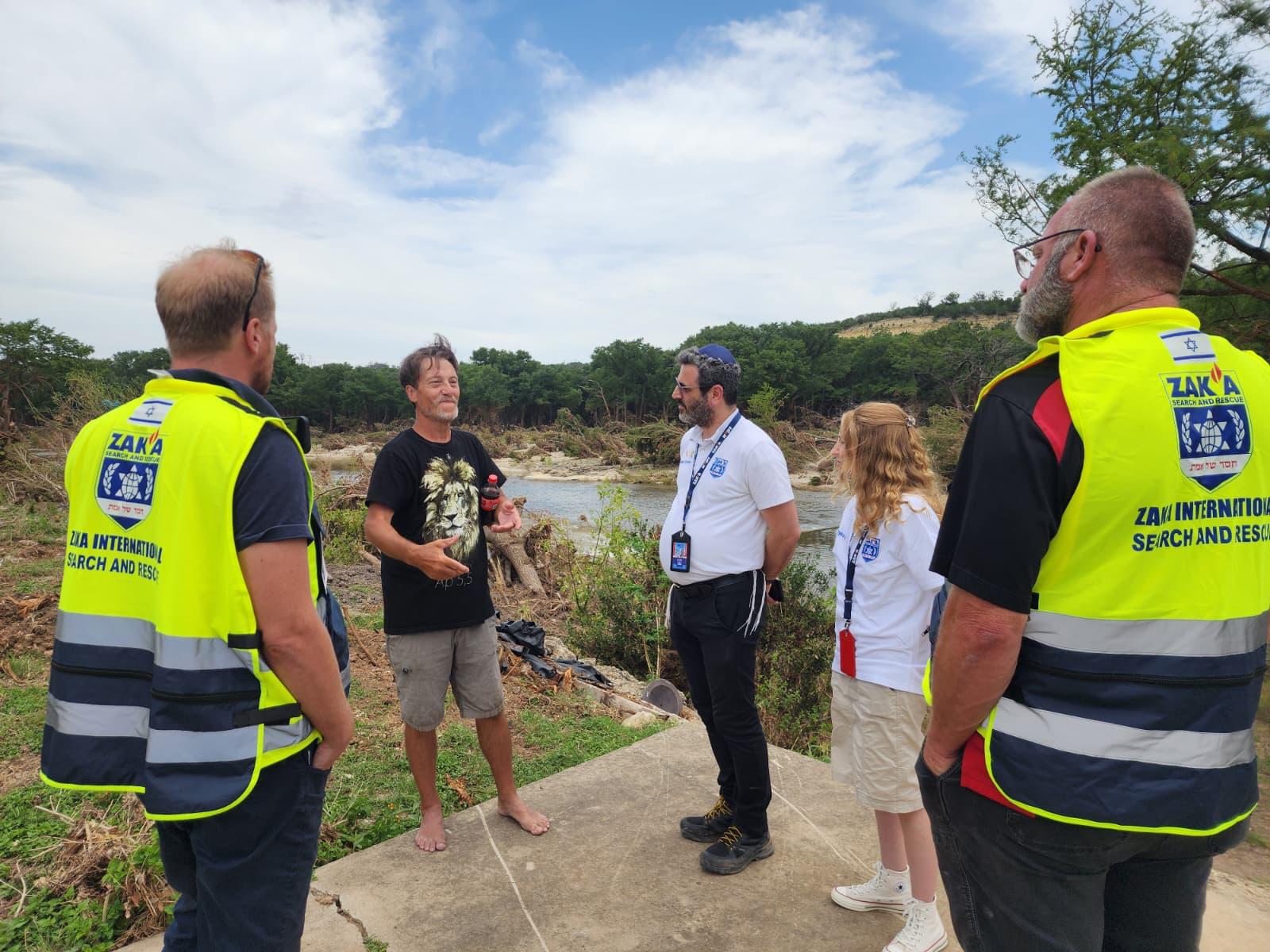In a formal letter of appreciation dated July 22, Texas A&M Engineering Extension Service (TEEX) and Texas A&M Task Force 1 officially recognized ZAKA Search and Rescue for their invaluable contribution to the search and recovery operation following the devastating flash floods in Kerrville, Texas. The acknowledgment highlights how international humanitarian cooperation transcended borders during one of Texas’s deadliest natural disasters.
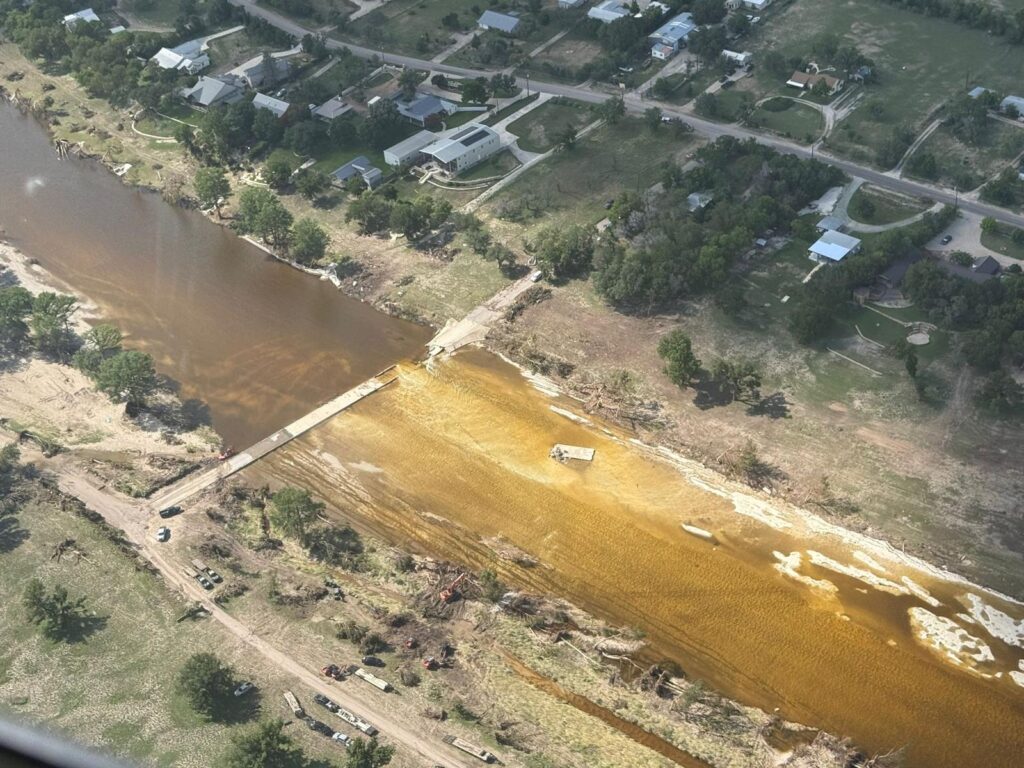
Flooding of the Guadalupe River (Photo courtesy ZAKA)
The letter, signed by Jeff B. Saunders, praised ZAKA’s specialized technical expertise in hydrological modeling, which proved instrumental in guiding search efforts along the Guadalupe River. Under the leadership of International Commander Nachman Dyksztejn, ZAKA deployed the “Menorah Mission – Texas,” bringing cutting-edge flood behavior analysis to support local authorities in identifying likely recovery zones.
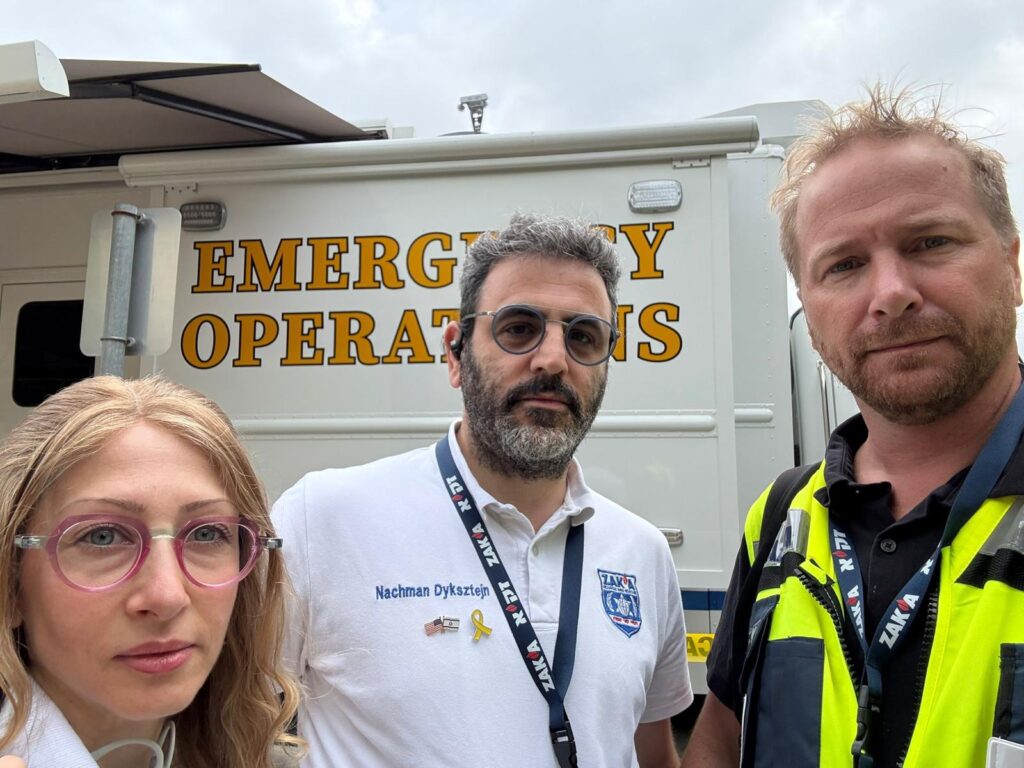
In his formal acknowledgment, Saunders specifically outlined ZAKA’s mission focus: “your mission, ZAKA Menorah Mission – Texas, focused on providing advanced hydrological modeling expertise to support local authorities in identifying likely recovery zones along the Guadalupe River.” The letter specifically recognized the technical contributions that made the mission successful.
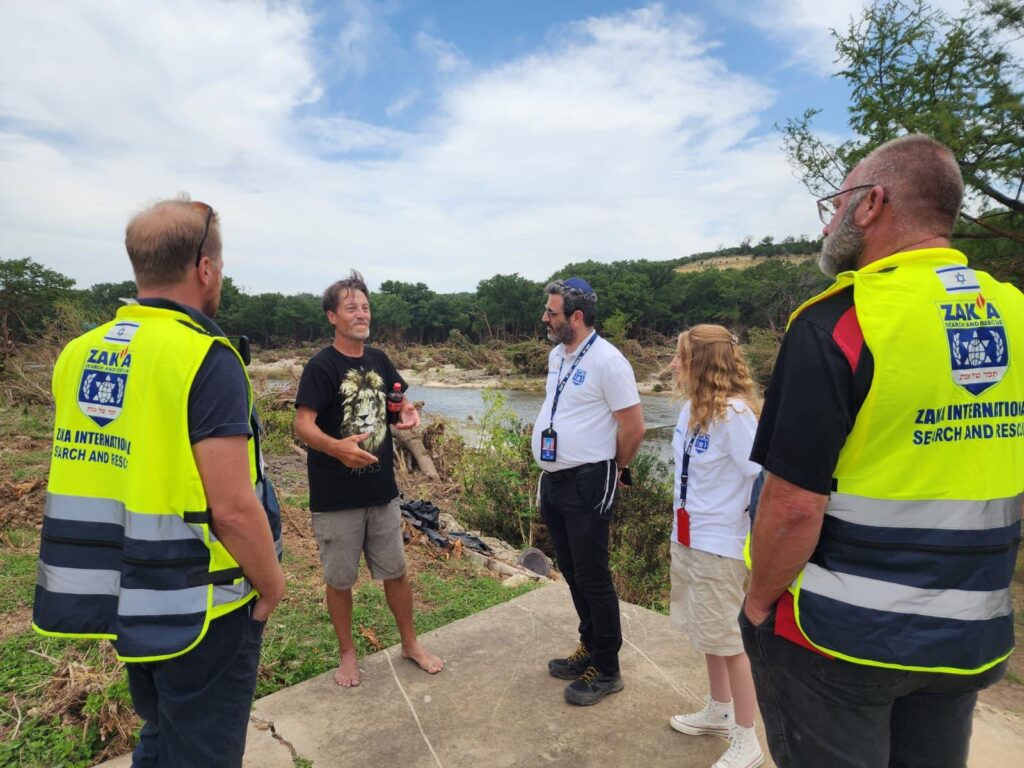
“We particularly acknowledge the technical contribution of Dr. Barak Fishbain, Associate Professor at the Technion – Israel Institute of Technology, whose Enviromatics Lab (TechEL), along with his students and the field support of Mrs. Valery Dyksztejn, developed dynamic simulation tools based on terrain analysis, environmental sensor data, and flood behavior modeling,” Saunders wrote. He emphasized that “These tools provided a data-driven framework that was instrumental in guiding search efforts on the ground.”
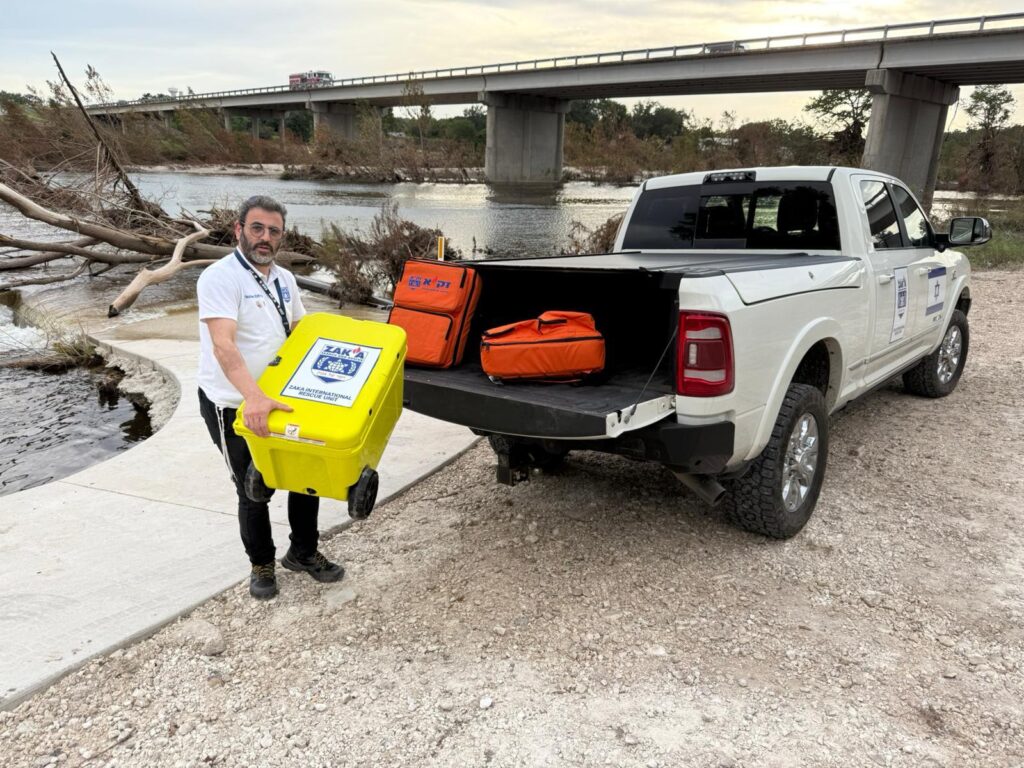
The letter also recognized the crucial coordination work that enabled the rapid deployment: “We also recognize the support of Mr. Marnix van Ede, Director of International Relations for ZAKA, whose early coordination with Texas authorities played a meaningful role in preparing the ground for a rapid and focused deployment.”
Concluding with appreciation for the broader impact, Saunders stated: “The ZAKA Menorah Mission – Texas was a clear example of international collaboration in times of crisis, and your team’s commitment to assist has been appreciated by all of us involved in the operation.” Looking ahead, he added: “Should future needs arise that call for specialized victim-tracing support or hydrological modeling, we would welcome the opportunity to work together again.”
Central to ZAKA’s contribution was the work of Dr. Barak Fishbain, Associate Professor at the Technion – Israel Institute of Technology, whose Enviromatics Lab (TechEL) developed dynamic simulation tools based on terrain analysis, environmental sensor data, and flood behavior modeling. Working alongside his students and with field support from Mrs. Valery Dyksztejn, the team created a data-driven framework that significantly enhanced the efficiency of ground search operations.
The mission also benefited from the early coordination efforts of Mr. Marnix van Ede, Director of International Relations for ZAKA, whose preparation work with Texas authorities enabled rapid deployment during this critical time. As Saunders noted in his letter, “The ZAKA Menorah Mission – Texas was a clear example of international collaboration in times of crisis.”
Zihui Korbanot Ason (ZAKA) is a volunteer-based rescue and recovery organization that has built an international reputation for responding to disasters worldwide. Founded in 1989 in Israel, ZAKA was initially established to attend to matters dealing with honoring the dead, like collecting severed limbs, a concept in Judaism known as Chesed Shel Emet (True Virtue). In the aftermath of terrorist attacks, ZAKA creates a centralized morgue to deal with the retrieval, identification, and burial of the deceased. By 1995, the group of dedicated volunteers had grown and transformed into an official rescue and recovery organization. ZAKA now works in close cooperation with Israeli emergency and security forces and is often the first on scene after an attack, administering first aid. Since then, ZAKA has grown to a world-renowned humanitarian organization, providing search & rescue, autopsy prevention, medical response, and emergency services globally.
The organization’s commitment to preserving human dignity extends far beyond Israel’s borders. Teams of ZAKA volunteers were sent to Japan in March 2011 to assist in search-and-rescue after the devastating earthquake and subsequent tsunami. A ZAKA team was part of an Israeli mission to Nepal in late April 2015 to help search for casualties in the aftermath of the earthquake, demonstrating their consistent international humanitarian engagement.
ZAKA’s work in Texas is particularly notable given the challenging circumstances surrounding their deployment. Despite their homeland being at war and commercial flights severely limited, ZAKA leaders say they felt compelled to come after witnessing the devastation on television. This dedication reflects the organization’s core principle, as expressed by ZAKA CEO Dubi Weissenstern: “We are not just bringing advanced tools and trained responders. We are bringing a commitment to uphold the sanctity of life and death.”
ZAKA’s assistance during the July 2025 floods was not its first engagement in Texas flood emergencies. The Divers Unit has been instrumental in saving lives, whether by responding to incidents of drowning, rescuing people caught in floods, or recovering individuals from water-related accidents, and the organization has previously deployed to Texas during flood events, building relationships with local first responders and establishing protocols for rapid international assistance.
In 2017, ZAKA volunteers traveled to Texas to help in the aftermath of Hurricane Harvey.
This established relationship proved crucial during the recent July 4 catastrophe, which claimed over 120 lives and left dozens missing across Central Texas. The floods particularly devastated the Hill Country region, with Kerr County bearing some of the heaviest losses, including casualties at summer camps along the Guadalupe River.




